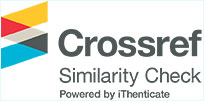The influence of irrigators’ attitudes and objectives on their decision making
Geoff Kuehne and Henning Bjornlund
Release Date: April 29, 2008
The influence of irrigators’ attitudes and objectives on their decision making
Geoff Kuehne1) and Henning Bjornlund1)2)
1) University of South Australia
2) University of Lethbridge
(Received: July 10, 2007)
(Accepted for publication: April 7, 2008)
Abstract:
Water markets were expected to minimise the socioeconomic impact of reducing irrigators’ water entitlements in Australia’s Namoi Valley by providing a mechanism for reallocating water from inactive license holders to active irrigators. But survey responses show that this is an unlikely scenario as it appears as though there may be a number of influences acting on inactive license holders that are stronger than the desire for economic gain from participating in water markets. This research constructs a typology that aims to provide an explanatory framework for understanding what those influences might be. A better understanding of farmers’ attitudes and objectives; and of the motivations for their behaviour, is likely to lead to better policy design and more successful policy implementation. The implication for policy makers is that reducing irrigators entitlement based on their past usage, rather than equal reductions for all, will cause less disruption within the affected communities as this method places minimum reliance on the market as a reallocation mechanism.
To cite this article:
Geoff Kuehne and Henning Bjornlund: “The influence of irrigators’ attitudes and objectives on their decision making”, Hydrological Research Letters, Vol. 2, pp.27-31, (2008) .
doi:10.3178/hrl.2.27
JOI JST.JSTAGE/hrl/2.27
Copyright (c) 2008 Japan Society of Hydrology and Water Resources



